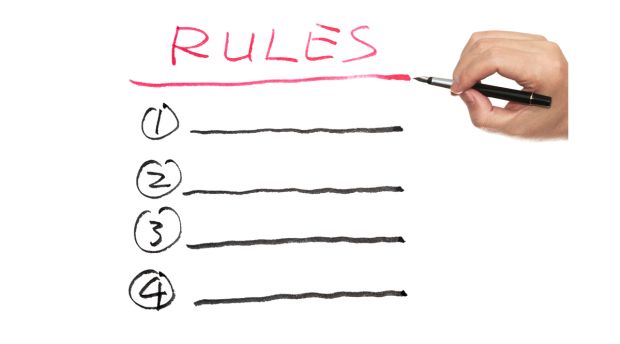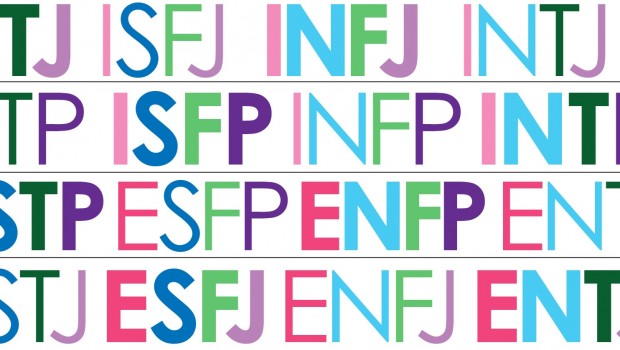Having Rules You Live By Can Make You Successful in Your Career and Life
Post Views 14Jotting down your operating principles can be something of an intellectual game; it can also be a pastime. Simply note and later reflect upon what you find in unlikely places-in detective fiction, for example. A character in Colin Harrison’s Break and Enter (Crown), Peter Mastrude, a seasoned divorce lawyer, has a business card that introduces him as “Counselor at law, Practicing Primarily in Family Law and Domestic Relations, No Charge Initial Consultation, Fees Available on Request, Compassionate Advice Humbly Offered.” This prepares you for his short list of “The Eternal Truths”:
- This is it!
- There are no hidden meanings.
- You can’t get there from here, and besides, there’s no place else to go.
- We are all already dying, and we will be dead for a long time.
- Nothing lasts.
- There is no way of getting all you want.
- You can’t have anything unless you let go of it.
- You only get to keep what you give away.
- There is no particular reason why you lost out on some things.
- The world is not necessarily just. Being good often does not pay off, and there is no compensation for misfortune.
Of course, cynicism pervades this set of principles, but wisdom is also present there. These maxims, like all the others presented in this chapter, are intended to be illustrative and thought-provoking. You are the one who has to assemble your own personal set and let them work for you.
One man, not yet forty, lost a corporate vice presidency when a large hotel chain downsized. While still looking for work, he composed for himself this set of five propositions with an eye to shaping the attitude he needed to sustain him in the search:
Putting things in true perspective. Considering how good other aspects of life are and how God has blessed me in so many other ways. Ensuring that my life is a balanced one. Work is only one piece of it, and it does not define me or my personal worth. Considering this to be an opportunity for positive changes and positive outcomes. Recognizing that the environment that I am leaving is not a healthy, growing, stimulating one. Recognizing and rewarding my personal strength and character.
It was a woman who directed my attention to an operating principle, phrased in an all-male vocabulary, that appeared as an epigraph accompanying an article entitled “Is There Life After Unemployment?” in Black Enterprise. The author, Donna Whittingham-Barnes, answers that question, “Yes-if you’re willing to stay flexible, acquire new skills and take some risks.” The words of the epigraph are James Russell Lowell’s: “No man is born into the world whose work is not born with him; there is always work and tools to work withal, for those who will.” As a principle of action for the unemployed manager, this idea will drive him or her to do the self-assessment that identifies talents possessed and preferences held. Once that is done, another principle comes into play. It is expressed in the title of Marsha Sinetar’s widely read book: Do What You Love, the Money Will Follow. That is a principle for the stout of heart, for the flexible person, willing to take some risks-the type of manager in demand to run operations and organizations in the new corporate culture.
The next chapter will focus your attention on strategy, the steps you have to take to reach your employment goal. The guiding principles outlined here are impulses or driving forces that keep your strategy moving; they are reference points that serve to remind you of who you are and where you want to go. Many people in all walks of life keep statements of principle in print and in view-framed on the wall, tucked into the wallet, inscribed on a bookmark. When I interviewed Bill Morin, chairman of Drake Beam Morin, the outplacement firm, I noticed that he had a set of principles framed and hung on the wall behind his desk. They are listed under the heading “My Values”:
To be honest-with sensitivity. To think of the other person’s motivation, needs, and desires first, before making judgments or even offering an observation. To concentrate on providing quality services or products with my work and leisure time, rather than self-serving activities. To take responsibility for all my life’s challenges and not blame my family members, friends, peers, the job, etc. To persevere for the common good, no matter what the cost.
Shortly after the death of former Washington Redskins coach George Allen, The Washington Post ran an appreciative article: “The Death of George Allen: When the Sun Comes Up, You’d Better Be Running.'” The quotation is from a sign on the wall in his last coaching office at Long Beach State University, where he returned to coaching at age seventy-one. Allen was fond of signs. This one read:
Every morning in Africa, a gazelle wakes up. It knows it must run faster than the fastest lion or it will be killed.
Every morning a lion wakes up. It knows it must outrun the slowest gazelle or it will starve to death.
[So] it doesn’t matter whether you are a lion or a gazelle. When the sun comes up, you’d better be running.You should try your hand at reducing your own principles to writing, or, at the very least, writing down principles that appeal to you and fit your circumstances, even though they may have been articulated by others. If not in open view, your principles should be kept in your mind’s eye for both guidance and inspiration.
Here are ten original principles, composed by a female member of a support group for unemployed white-collar workers in New York City. The author assembled these guidelines under the title, “How to Love Yourself,” and gave a copy to each member of her group; one of them passed along a copy to me:
1. Stop all criticism. Criticism never changes a thing. Refuse to criticize yourself. Accept yourself exactly as you are. Everybody changes. When you criticize yourself, your changes are negative. When you approve of yourself, your changes are positive.
2. Don’t scare yourself. Stop terrorizing yourself with your thoughts. It’s a dreadful way to live. Find a mental image that gives you pleasure (mine is yellow roses), and immediately switch your scary thought to a pleasure thought.
3. Be gentle and kind and patient. Be gentle with yourself. Be kind to yourself. Be patient with yourself as you learn the new ways of thinking. Treat yourself as you would someone you really loved.
4. Be kind to your mind. Self-hatred is only hating your own thoughts. Don’t hate yourself for having the thoughts. Gently change your thoughts.
5. Praise yourself. Criticism breaks down the inner spirit. Praise builds it up. Praise yourself as much as you can. Tell yourself how well you are doing with every little thing.
6. Support yourself. Find ways to support yourself. Reach out to friends and allow them to help you. It is being strong to ask for help when you need it.
7. Be loving to your negatives. Acknowledge that you created them to fulfill a need. Now you are finding new, positive ways to fulfill those needs. So lovingly release the old negative patterns.
8. Take care of your body. Learn about nutrition. What kind of fuel does your body need to have optimum energy and vitality? Learn about exercise. What kind of exercise can you enjoy? Cherish and revere the temple you live in.
9. Mirror work. Look into your eyes often. Express this growing sense of love you have for yourself. Forgive yourself looking into the mirror. Talk to your parents looking into the mirror. Forgive them too. At least once a day say: “I love you, I really love you!”
10.Love yourself–Do it now. Don’t wait until you get well, or lose the weight, or get the new job, or the new relationship. Begin now-and do the best you can.
I ran across a number of people in the course of this study who profited from reading Stephen Covey’s insightful book The Seven Habits of Highly Effective People. The book’s subtitle, Restoring the Character Ethic, suggests that much of what Covey has to say relates to principles of action. When I interviewed a senior manager who was separated from a large advertising agency and asked him about the principles that were guiding him in his transition, he simply handed me a list of Covey’s seven “habits,” a set of internalized fundamentals or habituated principles that direct responsible and effective adult behavior. Culled from the Covey book, here are the principles this man chose to wrap in his own words and make his own:
Habit 1: Be Proactive
The habit of individual responsibility, the principle that while we can’t always control what happens, we can choose our response: we need not feel powerless, trapped, or victimized.
Habit 2: Begin with the End in Mind
The habit of personal leadership, of discovering a personal mission and living out of a sense of purpose.
Habit 3:Put First Things First
The habit of personal management, of operating from priorities that flow from mission, roles, and goals.
Habit 4: Think Win-Win
The habit of interpersonal leadership and mutual benefit.
Habit 5: Seek First to Understand (and then to be understood)
The attitude and skill cultivated by all successful professionals,as it is a key to influence.
Habit 6: Synergize
The habit of creative cooperation that comes from exploring constructive alternatives, valuing differences of opinion, and seeking objective feedback.
Habit 7: “Sharpen the Saw”
The habit of self-renewal, of implementing a daily total fitness program that rejuvenates the mind and body and enhances capabilities.
The person who adopted these principles for guidance during his search had a personal reference point articulated in words borrowed from William Butler Yeats and rendered in attractive calligraphy for desktop reference. The words help to explain his remarkable serenity and his availability, to a greater degree than anyone I encountered in the course of this study, to assist others in looking for work. “We can make our minds so like still water that beings gather about us that they may see, it may be, their own images, and so live for a moment with a clearer-perhaps even with a fiercer-life because of our quiet.” His “quiet” attracted other job seekers to him, not because he could give them employment, but because he could give them hope, as well as sound advice for developing “clearer” objectives and “fiercer” strategies.
I have often thought it strange that we speak frequently of fierce competition, but rarely, if ever, think of fierce cooperation as a strategy, or refer to fierce adherence to a plan as a way of describing personal persistence. Have no fear of imposing fiercer standards on yourself and your strategy in the pursuit of reemployment. This surely does not mean walking over others to get to your goal. It does mean holding yourself to the plan you adopt to guide your job campaign. A successful plan will be a principled plan. So put your principles in writing-take time out to do that now-and consult that written page often as you articulate your personal mission statement and lay out the details of the job-search strategy that you will, I hope, want to write.
Having Rules You Live By Can Make You Successful in Your Career and Life by Granted Contributor



 Lifestyle Inflation Can Be a Bad Thing
Lifestyle Inflation Can Be a Bad Thing  Why Employers Need Intrapreneurs
Why Employers Need Intrapreneurs  11 Skills Needed to Break the 6 Figure Mark
11 Skills Needed to Break the 6 Figure Mark  The Successful Entrepreneur’s 10 Daily Habits
The Successful Entrepreneur’s 10 Daily Habits  Things Your Boss Takes Notice Of
Things Your Boss Takes Notice Of  How Personality Type Influences Your Career
How Personality Type Influences Your Career  How to Provide Employees with an Effective Performance Review
How to Provide Employees with an Effective Performance Review  See You in September: How to Turn a Summer Internship into a Full-time Job Offer
See You in September: How to Turn a Summer Internship into a Full-time Job Offer